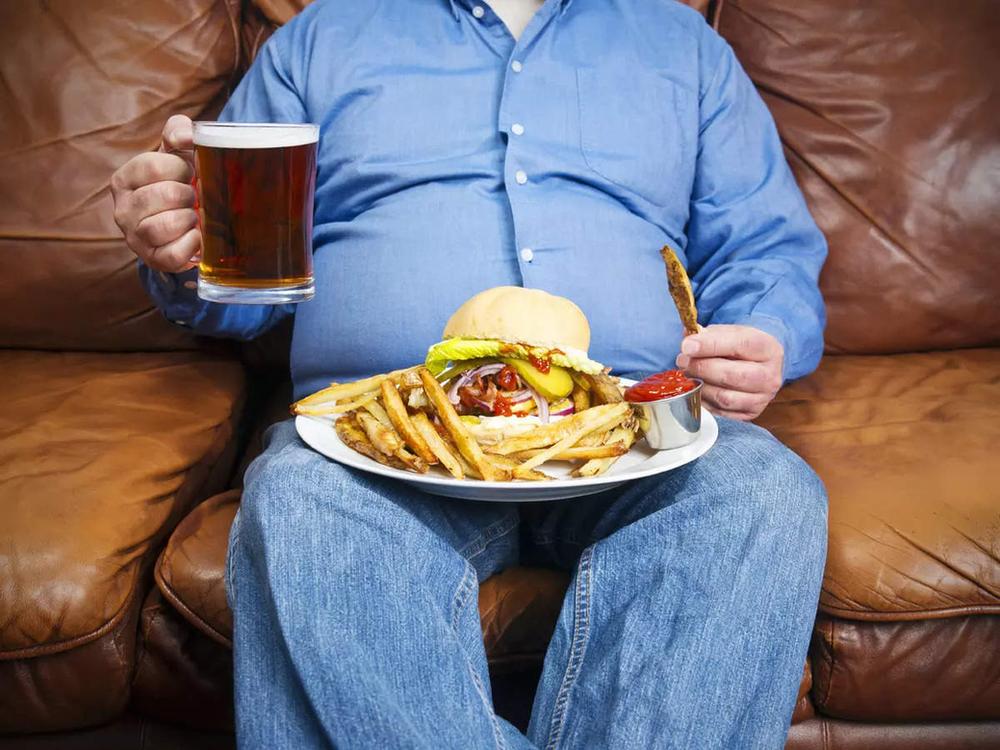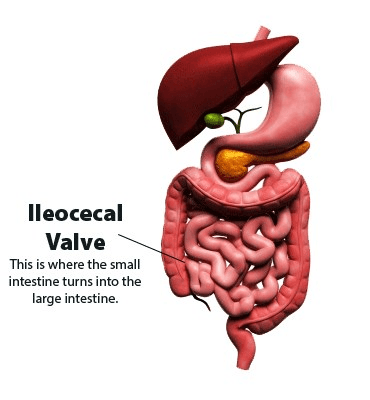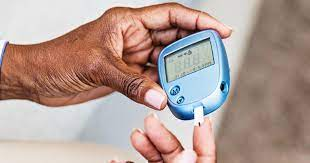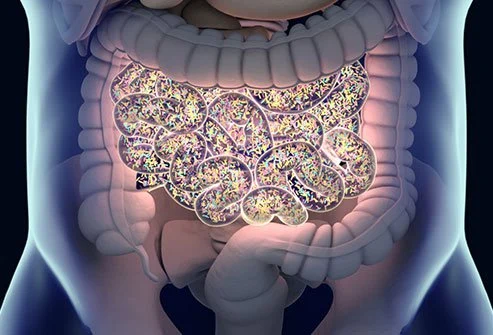The Problem:
Constipation is a symptom of an underlying problem. Let us face it, we have all been backed up, and some of us intuitively figure out what causes it. Some of us do not figure it out and tolerate this very nagging, and occasionally, life threatening problem as “part of who I am.” When we attack constipation holistically in functional medicine, we dive deep into the issues that are backing you up!

The Prototype :
If I could create a human constipated prototype, it would be the person who is sedentary, dehydrated, and stressed out, who is observing a low-fiber diet, traveling, and not exercising. Is this you? Can we impact any of these changes? If we attack the very base root of the problem, the normal non-constipated prototype would be the person who is active, well-hydrated, balanced and eating a high-fiber diet, and getting regular exercise. Could that be you? Knowing the top contributors to your pooping habits are within your power to control, this could be an easy fix. You may need persistence, planning, and support team members to keep you on track, but you can do it!
After you have had your traditional GI consult and have normal appearing colonoscopy, then what? How do I manage this in the holistic style of medicine? We all know the symptoms, so let us investigate the causes.

Medications
Medications are a large contributor to those who are constipated. To understand the medicine aggravators and the treatments of constipation we need to understand the migrating motor complex (MMC). This is the migrating myoelectric complex that propels our contents forward in the digestive process. We describe it as to where it is happening, such as the gastric, duodenum, intestinal, and colonic areas. We can also describe the phases that it has, and to be clear, this is a complicated system that incorporates a nerve conduction working synergistically with hormones (motilin, gastrin, CCK). There are four phases that take up to 90-180 minutes to complete and work best in between the meals and digestion. It used to crudely be described as the pacemaker of the gut system until we found out how complex the interplay is between the hormones and the electrical nervous conduction system. Medications can interfere with the hormones and neurons in the MMC. Try to avoid narcotics that heavily sedate the bowel. Antihistamines used for such common allergies slow the bowel down as well as dehydrate the poop itself. In fact, diuretics will dry out our terds rendering it near impossible to get a brick to pass! Most of the antacids will lay in the bowel like clay, and the older antidepressants such as Elavil and Doxepin interrupt motility. Even iron supplements have bound us up when used to treat anemia. Check your medicine cabinet, because even aspirin, Tylenol, and anti-inflammatory meds can slow you down. I have heard patients tell me that their “normal” is to void every 3 days, and I daresay that really is not the norm at all. The stool needs to eliminate leftovers, toxins, and keep the bacteria shedding rather than lying stagnant in the GI tract to cause overgrowth. Check your list of medications first. See what prescriptions can be eliminated rather than adding more pills and laxatives to your arsenal.

leocecal Valve
A defective ileocecal valve may not allow stool contents to get moved from the small bowel into the colon. If this is the culprit, there are yoga poses and energetic maneuvers, tinctures, Epsom salt baths, and massages that can work this valve out to get optimized.

Laxatives :
Listen carefully to the possibility of laxative overuse and abuse. Laxatives are bowel irritants and work by disturbing the intestinal tract which views these chemicals as toxic and wants to rid them from the system. In some ways enemas behave in the same way. That is not a natural process, and many of these laxatives (Miralax is one) have polyethylene glycol, an ingredient found in antifreeze. There are more physiological agents which contain magnesium or saline, to draw more water into the bowel, so that the bowel is softer and can pass more readily. Laxatives can damage nerve cells in the bowel so that these impulses will no longer work, and before you know it, the constipation is worse than when you got started treating it. Stick with the physiologic magnesium, which has hundreds of uses in the body, and add fiber with plenty of water. Stool softeners can be used such as mineral oil or glycerin to combat the episodes of constipation but try hard to avoid a true laxative with synthetic chemistry.

Endocrine Dysfunction :
For many of my thyroid and diabetic patients, the movement of the bowel is significantly hindered by excess sugar or undertreated thyroid since those nerve pathways can become paralyzed or damaged. In the case of gastroparesis, the nerve conduction can be so impaired that there is no movement and leads to a colonic inertia with very slow or no transit of the stool. This condition is tricky, so it is best to be quite aggressive with your thyroid health and very diligently work at the diet and lifestyle pieces of your diabetes. Functional medicine offers testing and treatment with the traditional model such that orthomolecular supplements may work well with or without medications.

SIBO:
Small intestinal bowel overgrowth refers to the type and number of bacteria living in the small intestinal tract where is does not usually belong. If the type of bacteria is off gassing a methane predominant type, the bowel is slowed down from that methane and leads to constipation. The testing arena of looking at the gut microbiome is evolving so quickly that we can identify if you have these conditions of overgrowth and can treat them also with integrative means. Many times, just knowing the proportion of gut bacteria and types can fix this problem quickly.

Daily Life :
Pooping daily requires a few good daily habits such as ingesting enough fluids and getting enough fiber in the diet. The Mayo Clinic reports a study recommending 3.7 liters of fluid per day for me, and 2.7 liters for women. It sounds like a lot, but if the stool needs moisture, it is also competing for the urine and the sweat and the insensible losses of our fluids each day. Fiber in the diet in imperative and the best is vegetables and fruit. Realize that ice cream, cheese, meat, and processed foods heave little to no fiber. Make enough time to poop. This sounds silly, except to say that if you are always traveling, on the run, and do not allow the defecation urge to take its time, you may not go regularly.

Exercise:
While this is a lifestyle habit as well, it deserves its own category because this is essential to maintaining regular habit while improving so many other functions of the body. The exercise stimulates the muscles in the body to evacuate and move the stool fast therefore, keeping the fluid in the stool. The improved blood flow during a workout also mechanically can help stool propel, while the increased heat rate helps with the neurological stimulation of the lining of the intestines.

When All Else Fails
Find us integrative and holistic physicians who collaborate with the whole person to figure this out when you have tried everything to figure this out and it won’t get better. The daily habits will be foundational, but the stool needs an evaluation, or you have been exposed to illness or medications that your body cannot tolerate, or a trauma or infection is at the root of the issue. Functional medicine includes all modalities of the healing wheel to go after these issues that may include massage, movement, energy healing, supplementation, herbs, SIBO treatment, chelation, or detoxification. The mechanical issues such as surgical scarring, tumors, inflammatory bowel, and adhesions may be outside of what you can do for yourself and may need a surgical specialist to help you. It is never too late to work on this human habit. It is time to consult now if you have not fixed it yet!!






Here, you can access lots of casino slots from leading developers.
Users can enjoy traditional machines as well as new-generation slots with stunning graphics and bonus rounds.
Even if you’re new or a seasoned gamer, there’s something for everyone.
online games
Each title are instantly accessible 24/7 and designed for laptops and mobile devices alike.
You don’t need to install anything, so you can jump into the action right away.
The interface is intuitive, making it simple to find your favorite slot.
Sign up today, and enjoy the excitement of spinning reels!
On this platform, you can find lots of casino slots from top providers.
Visitors can try out classic slots as well as modern video slots with vivid animation and exciting features.
If you’re just starting out or a seasoned gamer, there’s something for everyone.
casino games
Each title are ready to play 24/7 and optimized for PCs and tablets alike.
All games run in your browser, so you can jump into the action right away.
Site navigation is easy to use, making it convenient to browse the collection.
Sign up today, and discover the world of online slots!
Размещение систем видеонаблюдения поможет контроль вашего объекта на постоянной основе.
Инновационные решения обеспечивают четкую картинку даже в ночных условиях.
Вы можете заказать различные варианты оборудования, идеальных для бизнеса и частных объектов.
videonablyudeniemoskva.ru
Профессиональная установка и консультации специалистов превращают решение эффективным и комфортным для каждого клиента.
Свяжитесь с нами, и узнать о оптимальное предложение в сфере безопасности.
Монтаж оборудования для наблюдения поможет безопасность помещения круглосуточно.
Современные технологии позволяют организовать четкую картинку даже при слабом освещении.
Мы предлагаем множество решений устройств, идеальных для офиса.
videonablyudeniemoskva.ru
Грамотная настройка и техническая поддержка делают процесс простым и надежным для всех заказчиков.
Обратитесь сегодня, чтобы получить персональную консультацию в сфере безопасности.
Размещение оборудования для наблюдения позволит контроль помещения круглосуточно.
Современные технологии позволяют организовать высокое качество изображения даже в темное время суток.
Мы предлагаем множество решений систем, адаптированных для офиса.
стоимость установки камеры видеонаблюдения
Грамотная настройка и техническая поддержка превращают решение простым и надежным для каждого клиента.
Оставьте заявку, и узнать о лучшее решение в сфере безопасности.
Монтаж оборудования для наблюдения обеспечит безопасность территории на постоянной основе.
Продвинутые системы обеспечивают надежный обзор даже в темное время суток.
Вы можете заказать множество решений устройств, адаптированных для бизнеса и частных объектов.
установка видеонаблюдения в магазине цена
Качественный монтаж и консультации специалистов обеспечивают максимально удобным для каждого клиента.
Оставьте заявку, для получения оптимальное предложение по внедрению систем.
Установка оборудования для наблюдения позволит безопасность вашего объекта круглосуточно.
Продвинутые системы позволяют организовать надежный обзор даже в ночных условиях.
Наша компания предоставляет различные варианты оборудования, идеальных для бизнеса и частных объектов.
videonablyudeniemoskva.ru
Грамотная настройка и консультации специалистов делают процесс эффективным и комфортным для каждого клиента.
Обратитесь сегодня, и узнать о оптимальное предложение для установки видеонаблюдения.
Этот бот поможет получить информацию по заданному профилю.
Достаточно ввести никнейм в соцсетях, чтобы сформировать отчёт.
Система анализирует открытые источники и активность в сети .
глаз бога найти человека
Информация обновляется мгновенно с проверкой достоверности .
Идеально подходит для проверки партнёров перед сотрудничеством .
Анонимность и актуальность информации — гарантированы.
На данном сайте доступна данные о любом человеке, включая подробные профили.
Архивы включают персон разного возраста, профессий.
Данные агрегируются по официальным записям, что гарантирует надежность.
Нахождение выполняется по имени, что обеспечивает работу удобным.
глаз бога телеграмм официальный
Помимо этого можно получить контакты плюс полезная информация.
Все запросы выполняются с соблюдением норм права, обеспечивая защиту разглашения.
Обратитесь к этому сайту, в целях получения необходимую информацию без лишних усилий.
При выборе семейного медика стоит обратить внимание на его опыт , стиль общения и доступность услуг .
Убедитесь, что медицинский центр расположена рядом и предоставляет полный спектр услуг .
Спросите, работает ли доктор с вашей полисом, и какова загруженность расписания.
http://www.deonnyn.com/PSPA/viewtopic.php?f=8&t=46547
Оценивайте отзывы пациентов , чтобы понять уровень доверия .
Не забудьте сертификацию врача , подтверждающие документы для гарантии безопасности .
Оптимальный вариант — тот, где вас услышат ваши особенности здоровья, а общение с персоналом будет максимально прозрачным.
Хотите найти информацию о человеке ? Этот бот поможет полный профиль мгновенно.
Используйте продвинутые инструменты для поиска публичных записей в соцсетях .
Выясните контактные данные или активность через автоматизированный скан с верификацией результатов.
программа глаз бога для поиска людей
Бот работает с соблюдением GDPR, обрабатывая общедоступную информацию.
Закажите детализированную выжимку с геолокационными метками и графиками активности .
Попробуйте проверенному решению для исследований — точность гарантирована!
Jogo responsável compreende medidas que garantem segurança no iGaming , protegendo jogadores e prevenindo dependência .
As plataformas precisam implementar recursos como bloqueios temporários , permitindo que os usuários evitem excessos.
A conscientização sobre comportamento saudável fundamental para identificar sinais de alerta , como padrões compulsivos.
https://1win-platforma.com.br/
O controle de acesso proíbe o uso por participem , enquanto parcerias com ONGs ampliam a responsabilidade social.
Transparência nas regras do jogo garante confiança , com auditorias independentes fiscalizando práticas.
La montre connectée Garmin fēnix® Chronos représente un summum de luxe qui allie la précision technologique à un style raffiné grâce à ses matériaux premium .
Conçue pour les activités variées, cette montre répond aux besoins des athlètes grâce à sa polyvalence et ses capteurs sophistiqués.
Avec une autonomie de batterie jusqu’à plusieurs jours selon l’usage, elle s’impose comme un choix pratique pour les aventures en extérieur .
Ses fonctions de suivi incluent la fréquence cardiaque et les étapes parcourues, idéal pour les amateurs de fitness .
Intuitive à utiliser, la fēnix® Chronos s’intègre parfaitement à vos objectifs personnels, tout en conservant une esthétique intemporelle.
https://garmin-boutique.com
Le fēnix® Chronos de Garmin est un modèle haut de gamme avec des finitions raffinées et capteurs multisports.
Adaptée aux activités variées, elle allie robustesse et autonomie prolongée , idéale pour les entraînements intensifs grâce à ses outils de navigation .
Grâce à son autonomie allant jusqu’à 6 heures , cette montre reste opérationnelle dans des conditions extrêmes, même lors de sessions prolongées .
forerunner 245
Les outils de suivi incluent le comptage des calories brûlées, accompagnées de conseils d’entraînement personnalisés, pour les utilisateurs exigeants.
Intuitive à utiliser, elle s’adapte à vos objectifs, avec un écran AMOLED lumineux et compatibilité avec les apps mobiles .